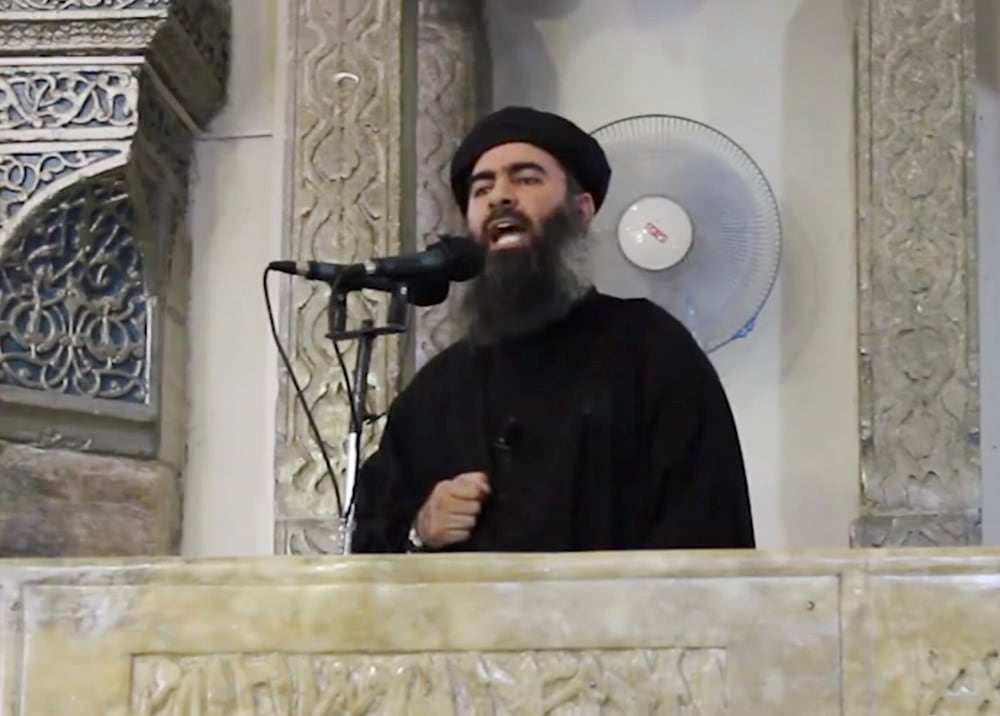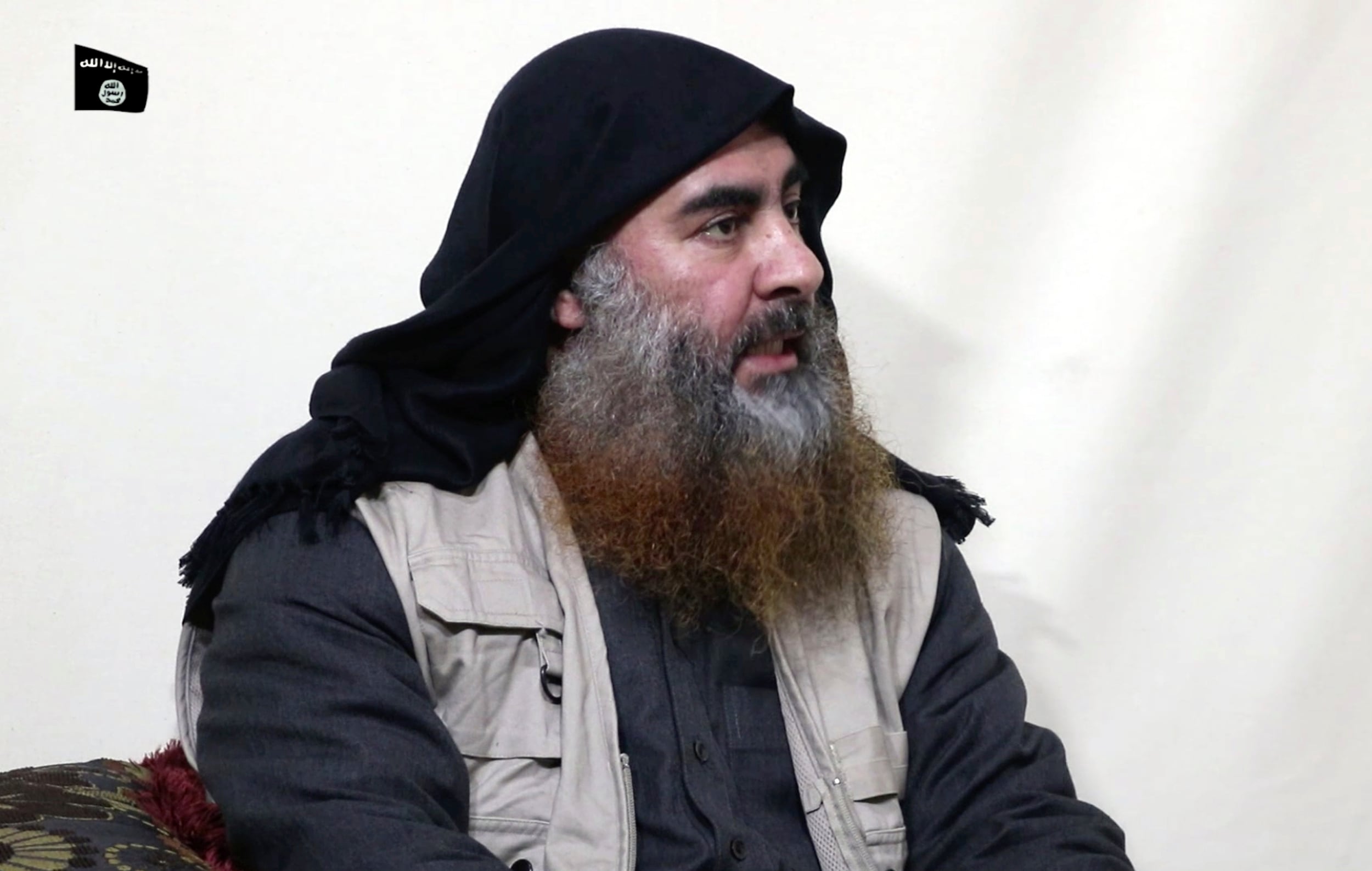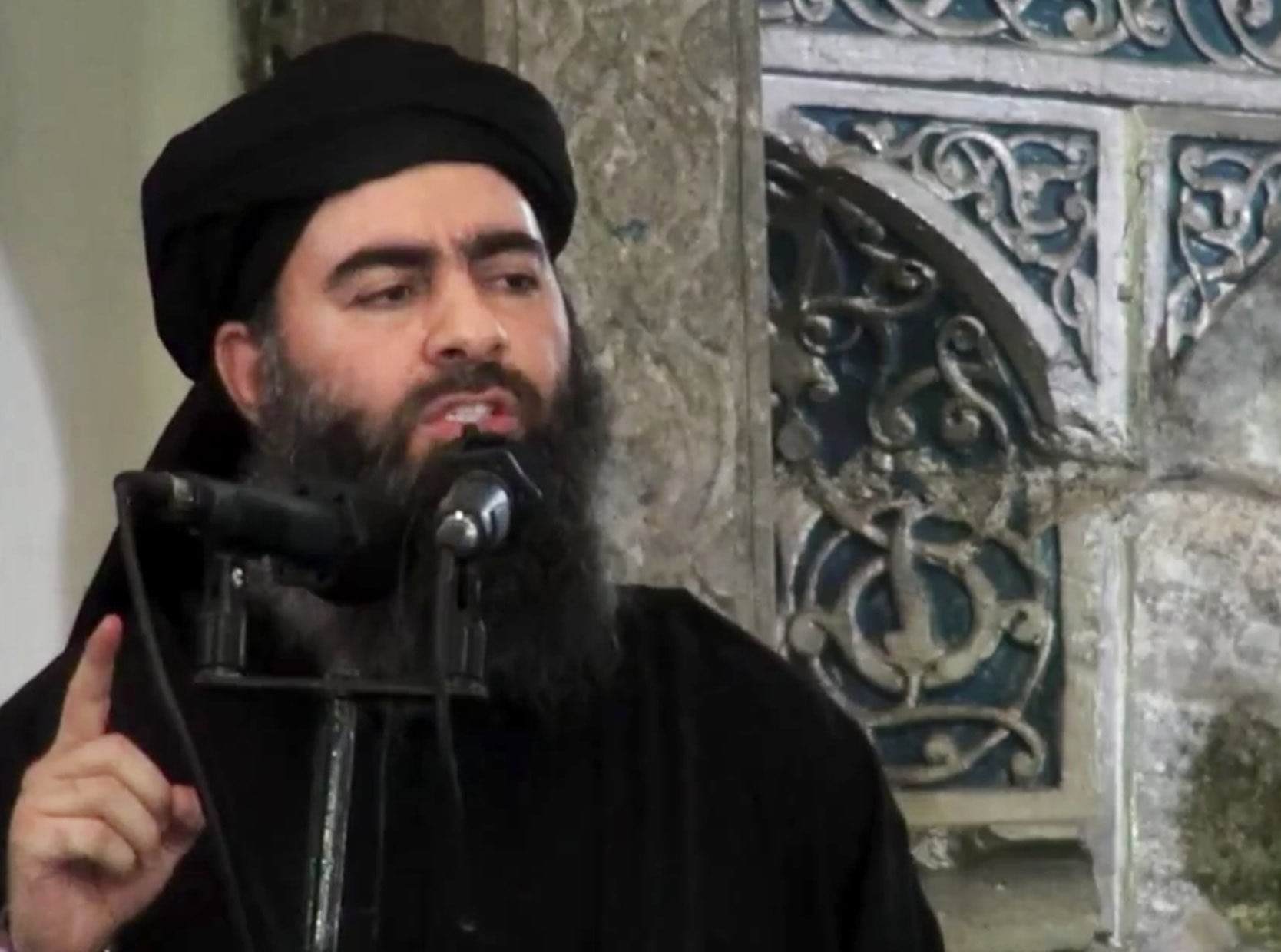BEIRUT — The shadowy leader of the Islamic State group appeared for the first time in five years in a video released by the extremist group’s propaganda arm on Monday, acknowledging defeat in the group’s last stronghold in Syria but vowing a “long battle” ahead.
The SITE Intelligence group said Abu Bakr al-Baghdadi, in the video, also discussed the Easter Day bombings in Sri Lanka which killed over 250 people and for which the group claimed responsibility.
The video released by Al-Furqan on Monday shows al-Baghdadi with a bushy grey and red beard, wearing a black robe with a beige vest and seated on the floor with what appears to be a rifle propped up next to him. He is speaking with three men seated opposite him whose faces were covered and blotted out.
RELATED

It is his first video appearance since he delivered a sermon at the al-Nuri mosque in the Iraqi city of Mosul in 2014. In that video, he appeared as a black-robed figure with a trimmed black beard to deliver a sermon from the pulpit of the mosque in which he urged Muslims around the world to swear allegiance to the caliphate and obey him as its leader.
Al-Bagdadi acknowledged that ISIS lost the war in the eastern Syrian village of Baghouz, which was captured last month by the U.S.-backed Kurdish-led Syrian Democratic Forces.
"In fact, the battle of Islam and its people against the Crusaders and their followers is a long battle," he said.
He said the battle of Baghouz demonstrated the "barbarism and brutality" of the West and the "courage, steadfastness and resilience of the nation of Islam."
"This steadfastness shocked the hearts of the Crusaders in what increased their rage," he added.
Referring to the setbacks in battle, he said the "brothers" of the many fallen fighters "will avenge that, as they will not forget as long as they have blood in their veins, and there will be a battle after this one."
It is unclear when or where the video was filmed. Al-Baghdadi spoke slowly and haltingly in the video.

He discussed Sri Lanka in an audio portion of the video, suggesting the April 21 attacks came after they filmed him.
Al-Baghdadi praised the attackers, saying they conducted the bombings as revenge for the fall of Baghouz, Syria, the last territory the extremist group held there or in Iraq.
“As for your brothers in Sri Lanka, they have put joy in the hearts of the monotheists with their immersing operations that struck the homes of the crusaders in their Easter,” al-Baghdadi said, according to a transcript from the U.S.-based SITE Intelligence Group.
He also called on Islamic State-pledged militants in the island nation off the southern tip of India to be “a thorn in the chests of the crusaders.”
Authorities initially blamed the Easter attacks, targeting three hotels and three churches, on a local militant named Mohammed Zahran and his followers. Then the Islamic State group on April 23 released images of Zahran and others pledging their loyalty to al-Baghdadi.
With a $25 million U.S. bounty on his head, al-Baghdadi is the world’s most wanted man, responsible for steering his chillingly violent organization into mass slaughter of opponents, and directing and inspiring terror attacks across continents and in the heart of Europe.
Despite numerous claims about his death in the past few years, al-Baghdadi’s whereabouts remain a mystery. He appeared in public only once, in 2014. Since then, many of his top aides have been killed, mostly in U.S.-led coalition airstrikes.
RELATED

He is among the few senior ISIS commanders still at large after two years of steady battlefield losses that saw the self-styled “caliphate” shrink from an area the size of Britain to a tiny speck in the Euphrates River Valley.
Although largely seen as a symbolic figurehead of the global terror network — he was described as “irrelevant for a long time” by a coalition spokesman in 2017 — al-Baghdadi’s capture would be a coveted prize for the various players across both Syria and Iraq.
But so far, he has eluded the Americans, Russians, Syrians, Iraqis and Kurds.




